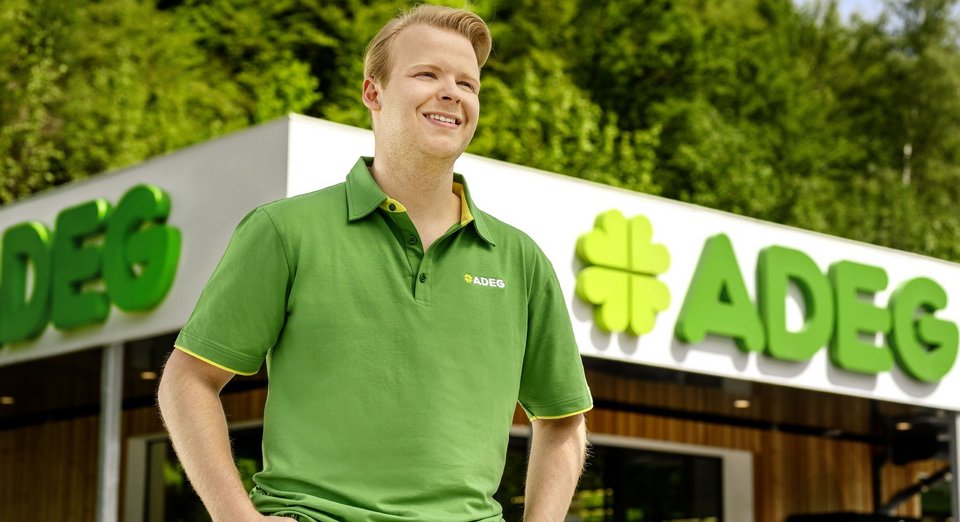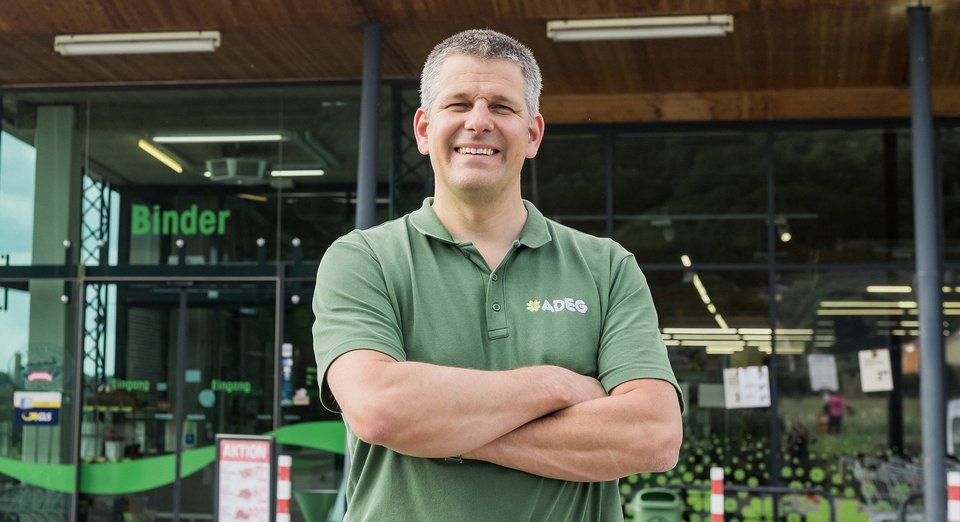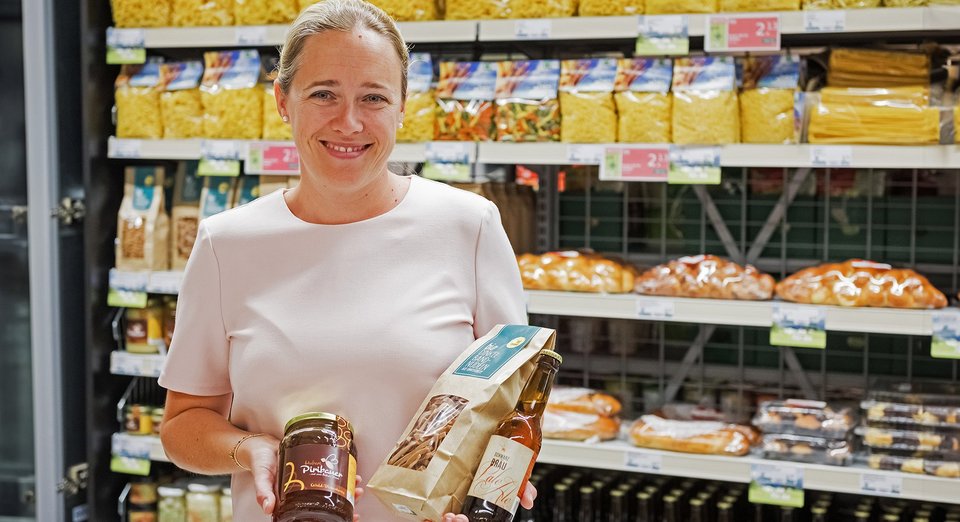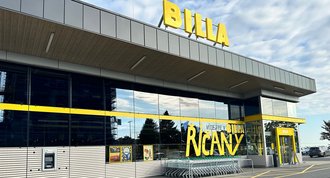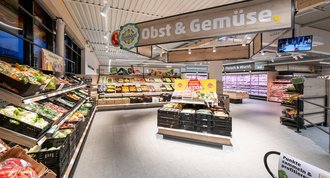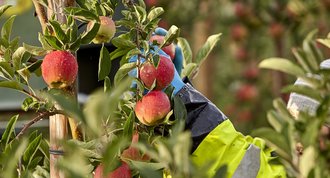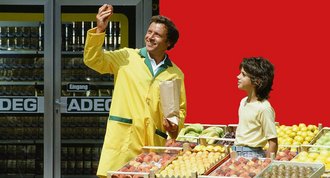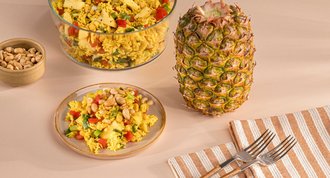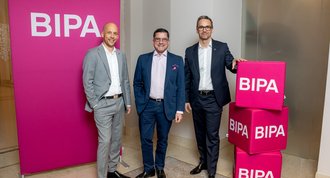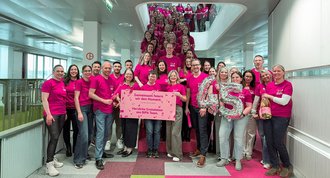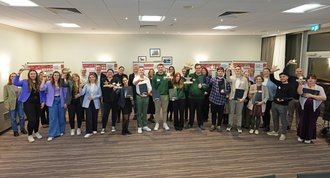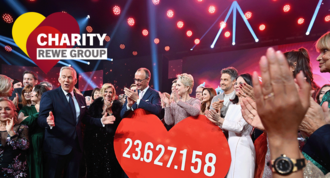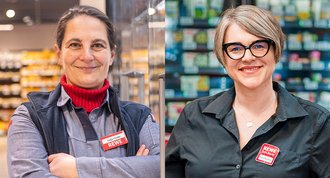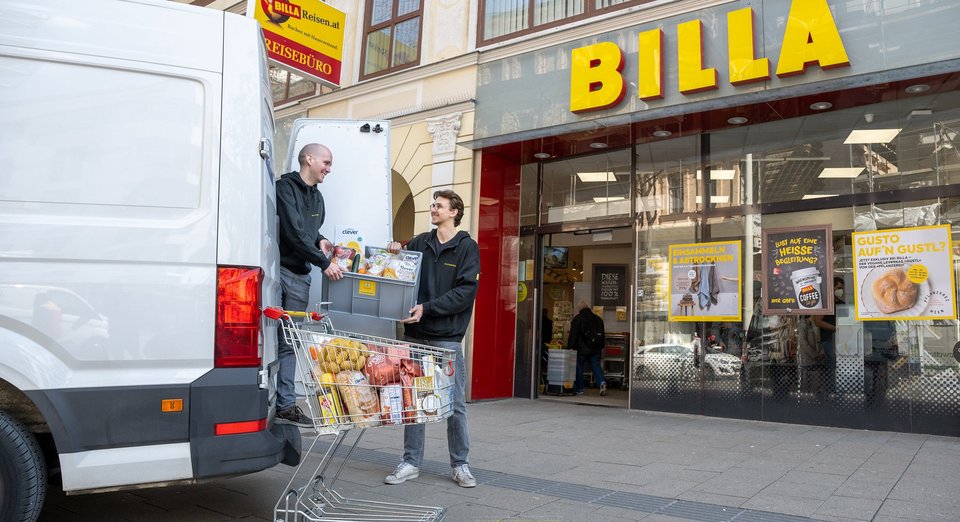
BILLA, PENNY, BIPA and ADEG rely on numerous initiatives and partnerships to rescue unsold food. Thousands of tonnes of food are given a second chance in fruit and vegetable bags, at charitable organisations or processed into animal feed. We show how food waste is avoided in Austria and what impact this has on the climate.
BILLA: Food is precious
BILLA has already donated over 4,350 tonnes of food to local social markets and charitable cooperation partners. BILLA customers can also give food with blemishes a second chance by buying reduced fruit and vegetable "sacks" and "Wunderlings". Unsellable baked goods are also given a second chance: over 1,000 tonnes have been processed into high-quality animal feed since April.
Harald Mießner, Management Board Member for Sales at BILLA: "As a food retailer, our top priority is to use the resources available to us responsibly. That's why we are constantly working to minimise food waste along the supply chain - be it through precise demand planning in the stores, price reductions for products that will soon reach their best-before date or through our close cooperation with charitable institutions, social markets and other partners. Our customers also support this by giving 'Wunderlingen' and fruit and vegetable bags a second chance, for example!"
At BILLA, the sustainable use of resources starts with the ordering of goods. In all BILLA and BILLA PLUS stores, individual order quantities are ordered based on forecasts so that only products that are actually needed are available. If there are still products left over that are approaching their best-before date, they are offered at a reduced price. They are recognisable by "Food is precious" stickers to raise awareness.
Each location works with a charitable organisation in its neighbourhood and provides it with products close to their best-before date free of charge. Volunteers collect these from the markets. Thanks to this close cooperation, over 4,350 tonnes of goods have already been saved since January. They have benefited various food bank organisations, the Foodsharing initiative and charitable associations.
A simple and very effective method in terms of food rescue are the fruit and vegetable sacks (bags) with bananas, apples, peppers and co. that have minor visual defects or no packaging. The 3.5-kilo bags are available - depending on availability - in all BILLA and BILLA PLUS stores. Since the beginning of the year, a further 2,700 tonnes of food have been saved in this way together with customers. And almost 2,000 tonnes of food have also been saved with the "Wunderlings" - fruit and vegetables that are of the best quality and have a crisp, fresh taste despite their unconventional appearance.
And this is another way to save food: In April 2024, BILLA launched a new pilot project with Austrian horse and livestock feed producer Königshofer to reuse baked goods that can no longer be sold or donated. Since it was rolled out to over 1,200 stores in Austria, over 1,000 tonnes of baked goods have already been turned into high-quality animal feed - and thus saved from disposal.
Freshly packed: the "PENNY saviour bags"
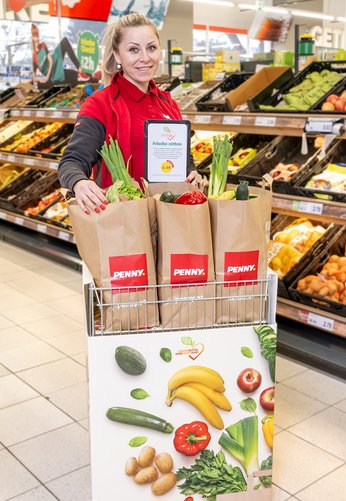 Picture: PENNY/Robert Harson
In keeping with the motto "Sustainability to go", all PENNY shops offer so-called "PENNY Saviour Bags" with fresh fruit and vegetables. With this initiative, PENNY wants to save as much fresh food as possible that can still be kept. This mainly concerns fruit and vegetables that no longer have their original packaging or whose packaging is damaged. Employees fill the paper carrier bags fresh every day with fruit and vegetables that are in good condition and perfectly edible despite minor visual defects. The three-kilo "PENNY Saviour Bags" are sold at a discounted fixed price of three euros. The aim is to give apples, bananas, peppers, potatoes and the like a second chance. Good to know: they are only packed if there is excess stock or packaging damage. In this way, PENNY is also endeavouring to order according to demand in the shops to ensure efficient and sustainable use of resources.
Picture: PENNY/Robert Harson
In keeping with the motto "Sustainability to go", all PENNY shops offer so-called "PENNY Saviour Bags" with fresh fruit and vegetables. With this initiative, PENNY wants to save as much fresh food as possible that can still be kept. This mainly concerns fruit and vegetables that no longer have their original packaging or whose packaging is damaged. Employees fill the paper carrier bags fresh every day with fruit and vegetables that are in good condition and perfectly edible despite minor visual defects. The three-kilo "PENNY Saviour Bags" are sold at a discounted fixed price of three euros. The aim is to give apples, bananas, peppers, potatoes and the like a second chance. Good to know: they are only packed if there is excess stock or packaging damage. In this way, PENNY is also endeavouring to order according to demand in the shops to ensure efficient and sustainable use of resources.
"Our commitment to acting responsibly starts with us and extends to the way we manage our resources and products. In view of the urgent need to counteract food waste, we are sending out another important signal with the new PENNY saviour bag," confirms Kai Pataky, Managing Director of PENNY Austria.
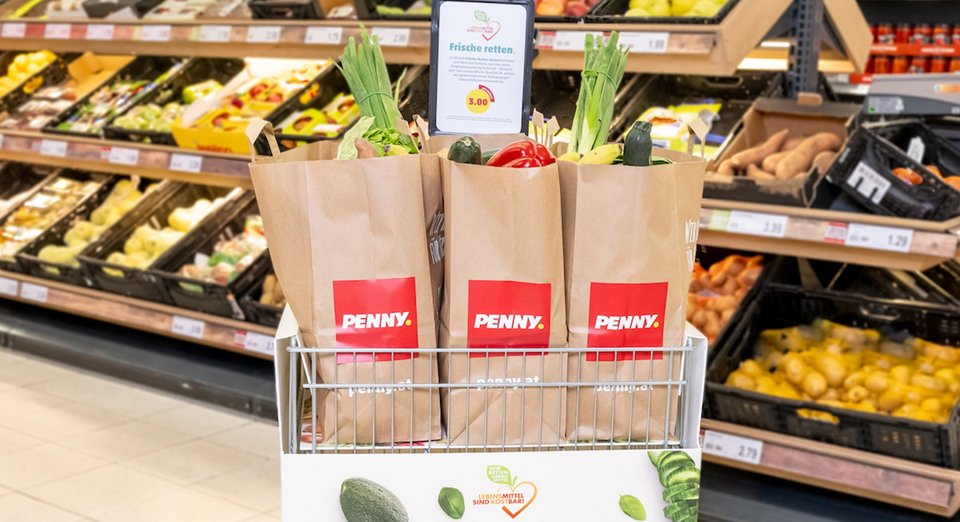
BIPA: Surprise bags via app
A year ago, BIPA became the first specialist drugstore retailer in Europe to start a collaboration with the social impact company Too Good to Go. The aim of the cooperation: to save food in the shops that is close to its best-before date but can no longer be sold in time from being disposed of. The initial results: with over 22,700 bags sold, over 61 tonnes of CO2 equivalents and more than 18 million litres of water were avoided or saved. On average, an agricultural area of around 64,000 square metres is required to grow this amount of food.
BIPA managing director Andreas Persigehl: "As a large Austrian company, we are aware of our responsibility to use resources sparingly and avoid waste. In the non-food sector, we have been implementing a wide range of measures for many years, so I am all the more pleased that we have found a great partner in Too Good To Go to make a valuable contribution to saving food."
Around 600 BIPA shops throughout Austria offer Too Good To Go bags. Each bag costs 2.99 euros and has a minimum value of 10 euros. The surprise bags can be reserved and paid for in the Too Good To Go app and collected from the respective shop within a defined period of time. Users can choose between four options - Food Mix (healthy (organic) food, bars, snacks), Baby Mix (baby snacks such as squeezies, baby jars, porridge), Fitness Mix (protein powder and bars, various fitness shakes) and Drinks Mix (ready-to-drink beverages, tea, mineral water) - the contents are compiled in the shops depending on availability.
Incidentally, the offer has been particularly well received in Lower Austria, where 5,400 bags have been saved. The favourite among the surprise bags is the BIPA food mix.
BIPA continues to donate non-food products that are not part of the campaign to charitable organisations and social markets. In the last 12 months, the sales value of these products totalled around 1.7 million euros.
ADEG: Food rescue made easy
Throughout Austria, independent ADEG retailers are involved in various regional measures to minimise the unnecessary waste of food that is still edible.
For example, products that are about to expire are not thrown away but donated to charitable organisations to help people in need. The independent retailers also cooperate with initiatives such as "Too good to go" and with regional farms that use food that is no longer fit for sale as animal feed. REWE Wholesale Managing Director Jürgen Öllinger emphasises the role model function: "Our ADEG retailers are sending a strong signal against food waste with their commitment. Through creative and sustainable measures, they show how responsible food handling can be practised in everyday life. They not only contribute to environmental protection, but also support people in difficult situations - a win-win situation for society and for our resources."
Background
According to the United Nations, around a third of food produced for human consumption is thrown away worldwide. In Austria, this amounts to more than 900,000 tonnes per year - the equivalent of 50,000 fully loaded lorries. Most of this is avoidable waste. Bread, confectionery and baked goods as well as fruit and vegetables are particularly affected. The biggest wasters are private households with a share of 58 per cent.

